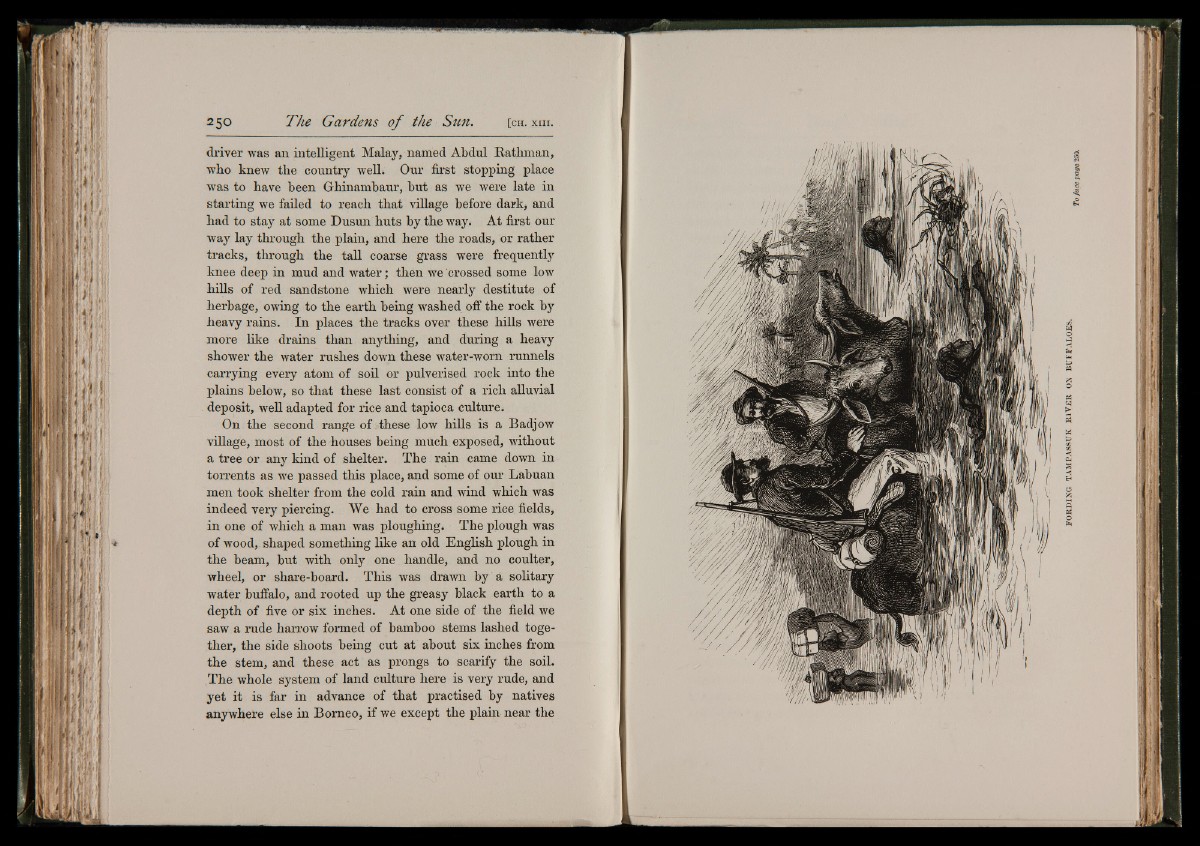
driver was an intelligent Malay, named Abdul Rathman,
who knew the country well. Our first stopping place
was to have been Ghinambaur, but as we were late in
starting we failed to reach that village before dark, and
had to stay at some Dusun huts by the way. At first our
way lay through the plain, and here the roads, or rather
tracks, through the tall coarse grass were frequently
knee deep in mud and water; then we crossed some low
hills of red sandstone which were nearly destitute of
herbage, owing to the earth being washed off the rock by
heavy rains. In places the tracks over these hills were
more like drains than anything, and during a heavy
shower the water rushes down these water-worn runnels
carrying every atom of soil or pulverised rock into the
plains below, so that these last consist of a rich alluvial
deposit, well adapted for rice and tapioca culture.
On the second range of these low hills is a Badjow
village, most of the houses being much exposed, without
a tree or any kind of shelter. The rain came down in
torrents as we passed this place, and some of our Labuan
men took shelter from the cold rain and wind which was
indeed very piercing. We had to cross some rice fields,
in one of which a man was ploughing. The plough was
of wood, shaped something like an old English plough in
the beam, but with only one handle, and no coulter,
wheel, or share-board. This was drawn by a solitary
water buffalo, and rooted up the greasy black earth to a
depth of five or six inches. At one side of the field we
saw a rude harrow formed of bamboo stems lashed together,
the side shoots being cut at about six inches from
the stem, and these act as prongs to scarify the soil.
The whole system of land culture here is very rude, and
yet it is far in advance of that practised by natives
anywhere else in Borneo, if we except the plain near the